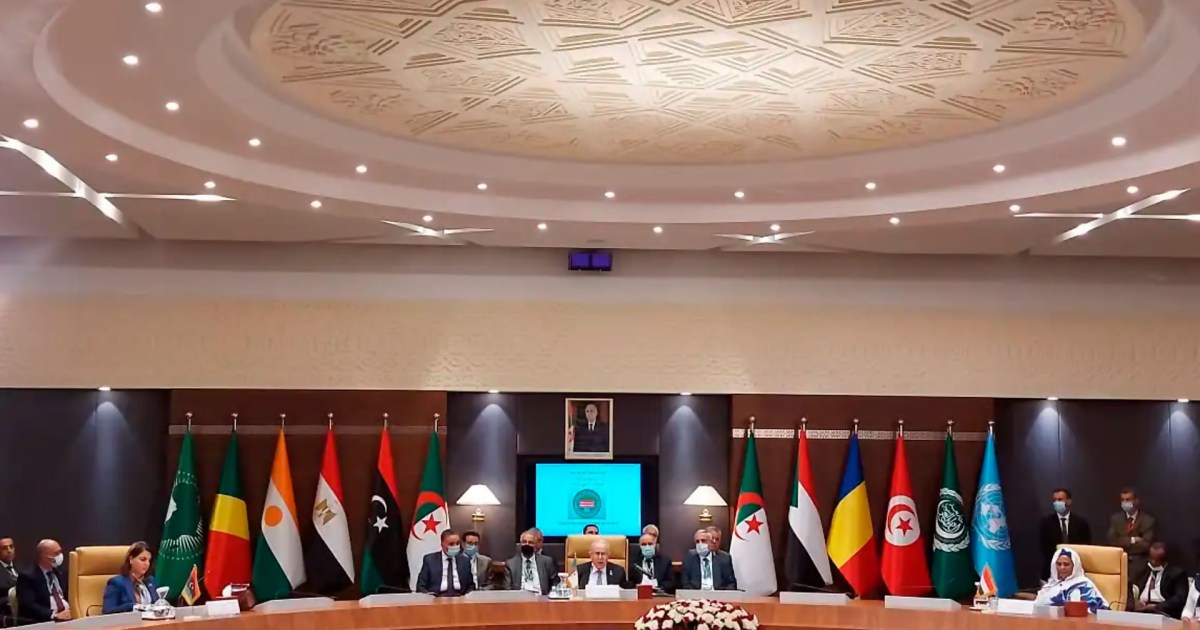The foreign ministers of Libya's neighboring countries met in a consultative meeting in the Algerian capital today, Monday, to discuss ways to support the political track and organize the Libyan elections on time.
The meeting was held at the Conference Palace, west of the Algerian capital, in the presence of the foreign ministers of Algeria, Tunisia, Libya, Egypt, Sudan, Niger, Chad and the Democratic Republic of Congo, and with the participation of the United Nations, the African Union and the Arab League.
Algerian Foreign Minister Ramtane Lamamra said that the security and stability of Libya is part of the security and stability of neighboring countries.
He assured Lamamra that the solution to the Libyan crisis will only be through a Libyan-Libyan track with the support of the international community.
For his part, the UN envoy to Libya, Jan Kubis, said that everyone is committed to holding the elections on time on December 24, calling for the speedy adoption of the constitutional basis on which the parliamentary and presidential elections will be held.
Kubis urged the active and neighboring countries to send observers to the Libyan elections, and called on Libya and neighboring countries to effectively manage the borders in accordance with bilateral agreements.
In her turn, the Libyan Foreign Minister, Najla Al-Manqoush, called in her speech to organize a consultative conference to discuss the Libyan file, stressing the aspiration of her country's government to a democratic political system and building a partnership with neighboring countries.
Al-Manqoush said that the security and military track in Libya is the biggest challenge for her country's exit from its current crisis, and that the continued presence of mercenaries in Libya poses a threat to the entire region.
Government interrogation
On the other hand, the Libyan House of Representatives postponed the questioning of the national unity government headed by Abdel Hamid al-Dabaiba, which was submitted by a number of deputies regarding its previous term of office.
The spokesman for the Libyan House of Representatives, Abdullah Blihaq, said that the postponement came in response to an official request from the government, which wants to clarify the interrogation points in preparation for preparing its responses to it.
The spokesman indicated that Parliament will discuss in its session in Tobruk (eastern Libya) the draft law to elect the next House of Representatives.
After years of war, Libya has been witnessing a political breakthrough for months. On March 16, an elected transitional authority (which includes a unity government and a presidential council) assumed its duties to lead the country to parliamentary and presidential elections on December 24.

